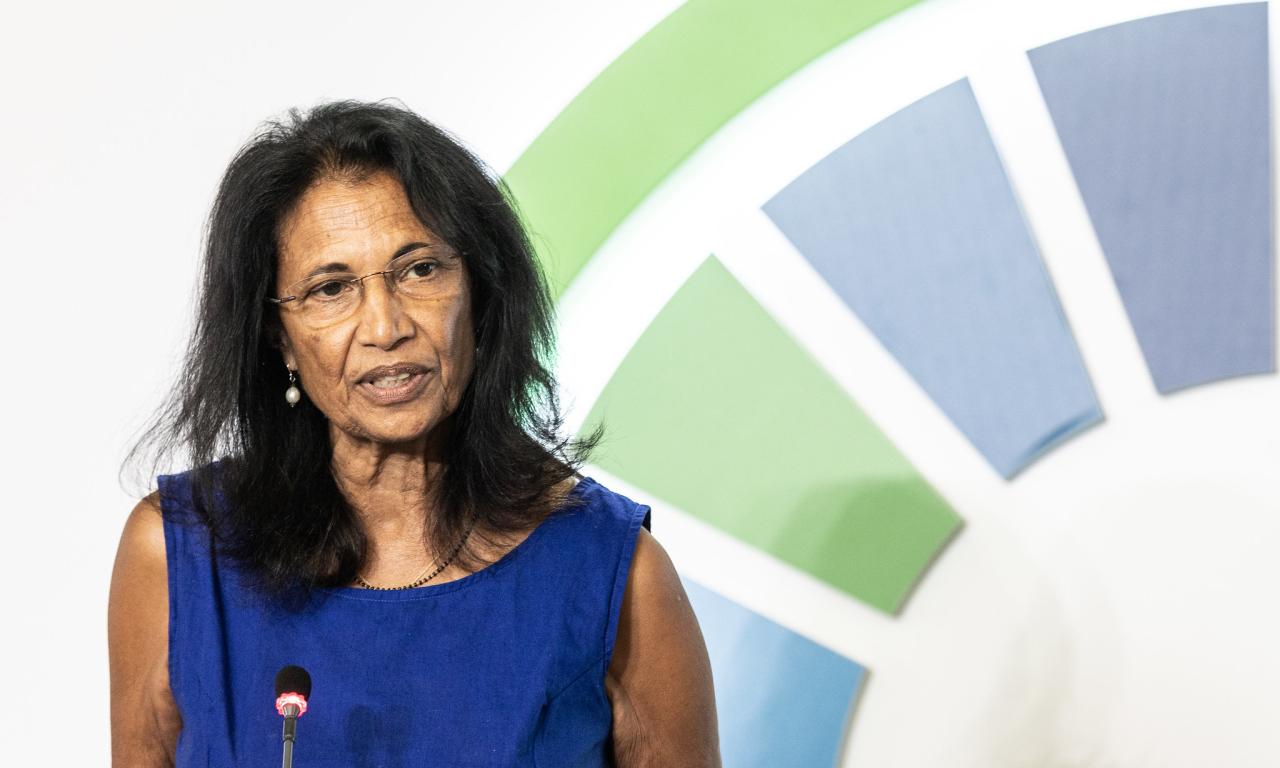
WorldFish joined the UN Food Systems Pre-Summit to highlight the essential role of aquatic food systems in a global transformation toward sustainable healthy diets for all.
The Pre-Summit of the UN Food Systems Summit set the stage for the culminating global event in late September. Held from July 26-28th, the three-day event gathered diverse actors from around the world to leverage the power of food systems to deliver progress on all 17 Sustainable Development Goals (SDGs).
Framed as the “People’s Summit,” the event brought together youth, farmers, indigenous peoples, civil society, researchers, the private sector, policy leaders and government ministers to work in collaboration towards a global food systems transformation. The underlining principle was the right to nutritious food for all, with marginalized groups having an opportunity to take center stage and lead dialogues.
As part of WorldFish’s efforts to ensure aquatic foods are prioritized on the Summit Agenda, researchers took an active role participating in the Main Program as well as hosting key Affiliated Sessions to share evidence-based approaches for a food systems transformation that supports healthy, sustainable diets for all, in which aquatic foods play a key part.
As a recap, find below the event summary and recordings for those WorldFish hosted and participated in.
The triple challenge of meeting food, climate and biodiversity goals
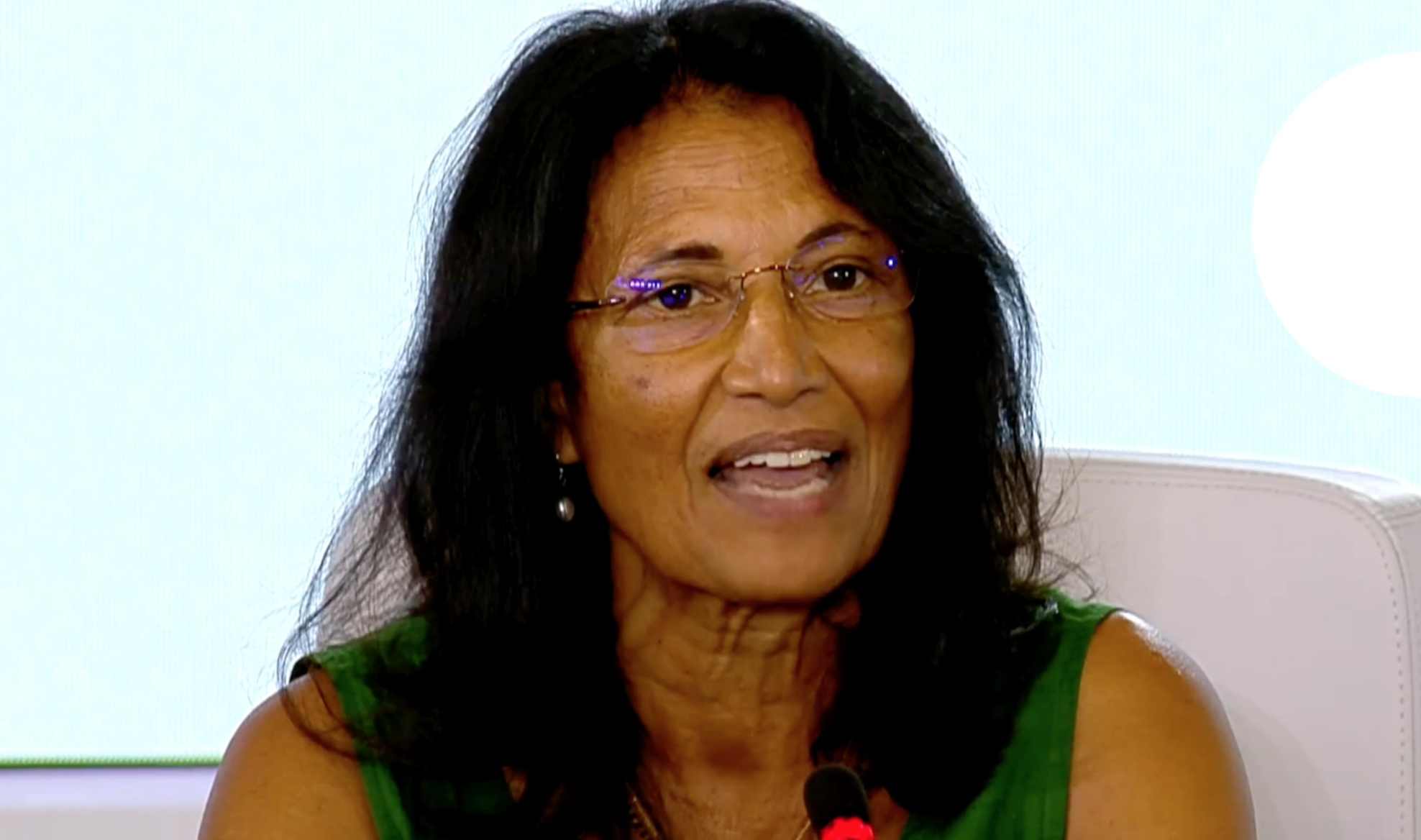
The World Wildlife Fund hosted a session to explore the conflicting challenges that humankind will face over the next 30 years: feeding a growing population, while working to keep warming below 1.5°C and reversing biodiversity loss.
The event brought together experts working across the UN Food Systems Summit Action Track 5, which focuses on building resilience to shocks and vulnerabilities, to share solutions for addressing biodiversity loss, climate change and an inefficient food system, where food loss and waste is a significant issue yet a large proportion of the population remains malnourished.
Working towards the full integration of aquatic foods
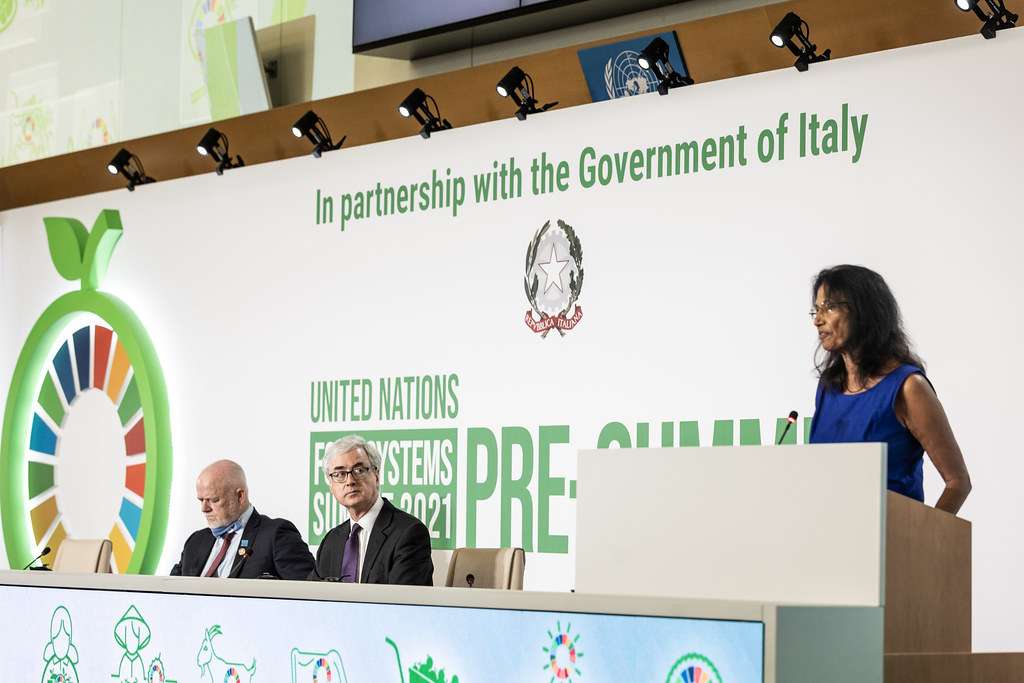
Members of the Blue Food Assessment team held a session alongside global partners in aquatic food systems to explore the role of aquatic foods in achieving food security, ending malnutrition and building resilient food systems.
The session expanded on existing research to support key policies, investments and partnerships that harness the power of aquatic foods to improve food and nutrition security and boost nature-positive production in support of diverse livelihoods.
WorldFish’s Shakuntala Thilsted,Vice Chair of the Summit’s Action Track 4, joined UN Secretary General’s Special Envoy for the Food Systems Summit Agnes Kalibata to emphasize the growing importance of integrating blue foods into the global economy.
Aquatic foods for healthy people and planet
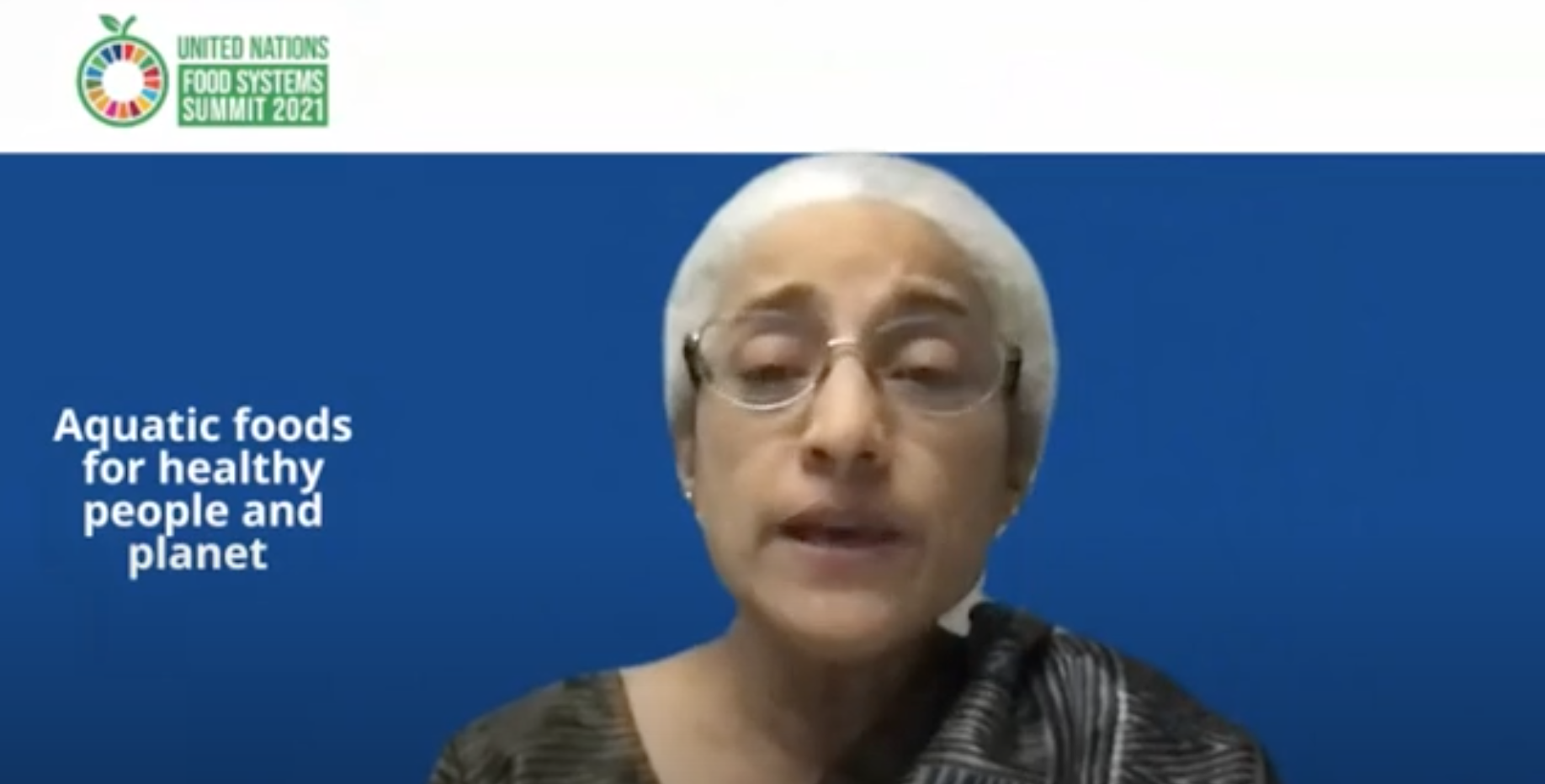
The WorldFish-led affiliated session brought together diverse voices of aquatic food producers, processors, traders and consumers to share perspectives from around the globe. The discussion, led by women, focused on leveraging aquatic food systems to improve food and nutrition security within planetary boundaries.
Together with policymakers and private sector actors from nations like Bangladesh, Nigeria and Timor-Leste, women shared solutions and innovations built on traditional knowledge that are working for them in their specific cultural contexts.
These discussions were intended to raise the profile of aquatic foods and consolidate critical actions to ensure they are part of an inclusive food systems transformation.
Unleashing science’s potential to transform food systems

CGIAR and the World Farmer Organization brought together high-level research organizations to highlight the importance of research and innovation in transforming the way the world produces, consumes and thinks about food.
“There is a need to shift from commodity-based research to systems-based research. A food systems transformation can only be achieved when we explore the various entry points and pathways along the food systems framework,” said WorldFish’s Shakuntula Thilsted.
CGIAR’s Managing Director of Research Delivery and Impact, Claudia Sadoff, explained that food systems must not only produce enough to feed a growing population, but also address rising levels of malnutrition and scarce natural resources.
Researchers further called for policymakers to adopt science-based, pro-poor policies to mitigate risks and vulnerabilities in global food systems.
Putting nutrition at the center of food systems transformation
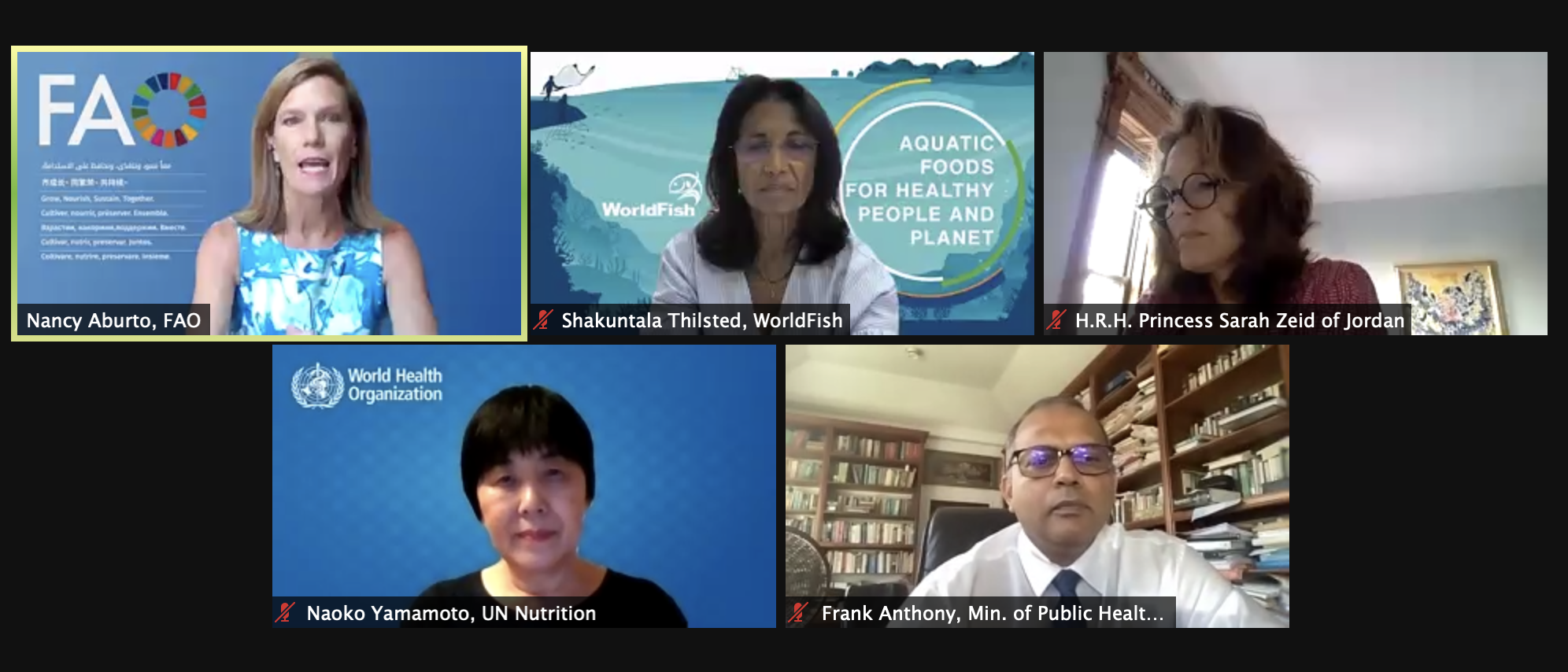
UN Nutrition gathered a panel of food and nutrition security experts to discuss the actions needed to shape nutritional programs and policies capable of providing healthy, sustainable diets for all.
Current food systems neither work for people nor the planet. Nutrition-sensitive approaches to food systems are thus essential to usher in a global transformation that works for everyone – rather than focusing on the quantity of food produced, there should be a renewed focus on quality.
Scaling up effective laws, policies and programs, such as national fish-based dietary guidelines and school feeding programs, is also integral to nourishing nations.
Gender-transformative approaches key for just food systems

CGIAR Gender held a session with a panel of government ministers, researchers, and public-private sectors representatives to streamline gender inclusion across food systems through Gender-Transformative Approaches (GTA).
Despite the significant roles and responsibilities women assume in food systems, they often perform unpaid labor and face systemic disadvantages in accessing resources and influencing policies.
Gender Transformative Approaches call for the systematic integration of gender equality infood systems programs and policies. They recognise that women and men experience different levels of discrimination, challenging all actors to transform power dynamics that perpetuate and reinforce inequality.
“There is extensive and compelling evidence that GTAs contribute to improved food and nutrition security. Other impacts such as increased income and improvements in human health come with closing the gender gap and implementing GTAs in food systems,” said WorldFish’s Gender Research Lead Cynthia McDougall.
Small in size, big in numbers – Aquatic food producers
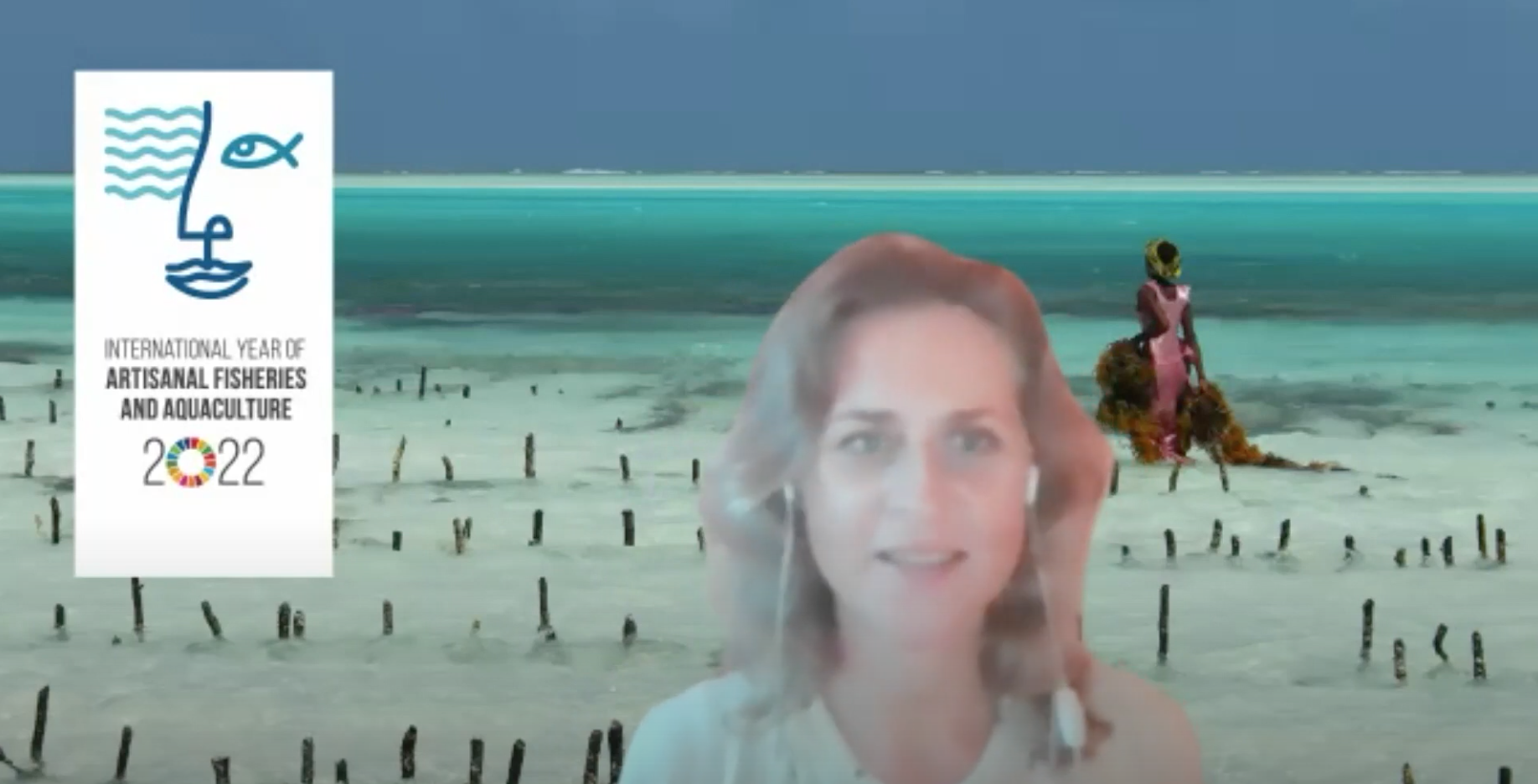
WorldFish and FAO invited members of the International Steering Committee of the International Year of Artisanal Fisheries and Aquaculture to discuss the contributions of small-scale aquatic food producers and explore the actions needed to elevate their rights, health and well-being.
Aquatic foods are one of the most threatened food sectors, with ecosystems experiencing severe decline, yet small-scale aquatic food producers are often overlooked and marginalized in decision-making. The contributions of small-scale producers to food security are also persistently undervalued and underestimated.
The contributions of small-scale producers must be acknowledged and recognized to build more resilient and inclusive food systems.
Register to join the virtual Food System Summit on September 23
